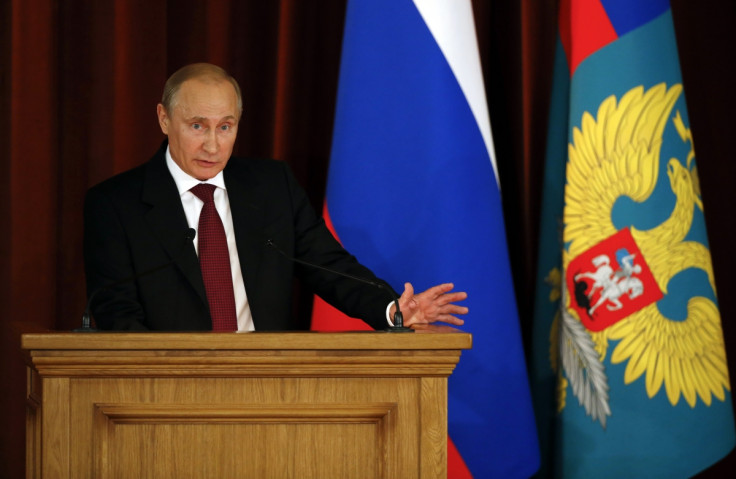US and EU Sanctions Had "Chilling Effect" on Russian Economy

Sanctions imposed on Russia after it annexed Crimea from Ukraine have had a "chilling effect" on its economy, halting growth and threatening to isolate Moscow from the global economy, according to the International Monetary Fund.
In a report on the Russia's economic outlook, the Washington-based fund said it expected Russia's gross domestic product to increase by 0.2% this year.
"Even without the escalation (of the Ukrainian crisis), prolonged uncertainty and the resulting deterioration of confidence could lead to lower consumption, weaker investment and greater exchange-rate pressure and capital outflows than assumed under the baseline," the IMF said in a report.
"Moreover, this risks derailing the reform agenda and a shift toward more emphasis on economic self-reliance rather than integration with the rest of the world."
Russian President Vladimir Putin has urged Russian business chiefs to repatriate their assets and reduce reliance on Western financial systems after a number of Russians with close ties to the Kremlin faced asset freezes and travel bans over Russia's actions in Ukraine.
"This comes at a crucial moment when the old growth model, based on energy and use of spare capacity, has been exhausted and moving to a new growth model, based on diversification, requires new investment, including foreign technology," the IMF said.
Antonio Spilimbergo, the IMF's mission chief to Russia, underlined the message to journalists on the sidelines of the St Petersburg conference, saying Moscow should not isolate itself.
"It's very important to be more integrated with the rest of the world, both financially and economically," he said. "Now, the recent events are problematic... because it would be a big pity if this takes a toll on investment in the longer term."
The IMF growth prediction was below that of Russia's central bank and the Economy Ministry, which forecast 0.4% and 0.5% growth respectively.
Meanwhile, the country's central bank governor, Elvira Nabiullina, told a banking conference that the country's poor growth performance was risking Russia's ability to attract foreign capital.
"The rouble's long-term stability is possible only by lowering the outflow of capital," Nabiullina said.
The IMF estimated that capital outflows from the country could reach $100bn (£58bn, €73bn) this year.
The United States and the European Union targeted a number of Russian businesses and individuals with economic sanctions after Moscow annexed the Crimea peninsula in March, saying that Moscow continued to support separatist rebels in Ukraine's east.
© Copyright IBTimes 2025. All rights reserved.






















